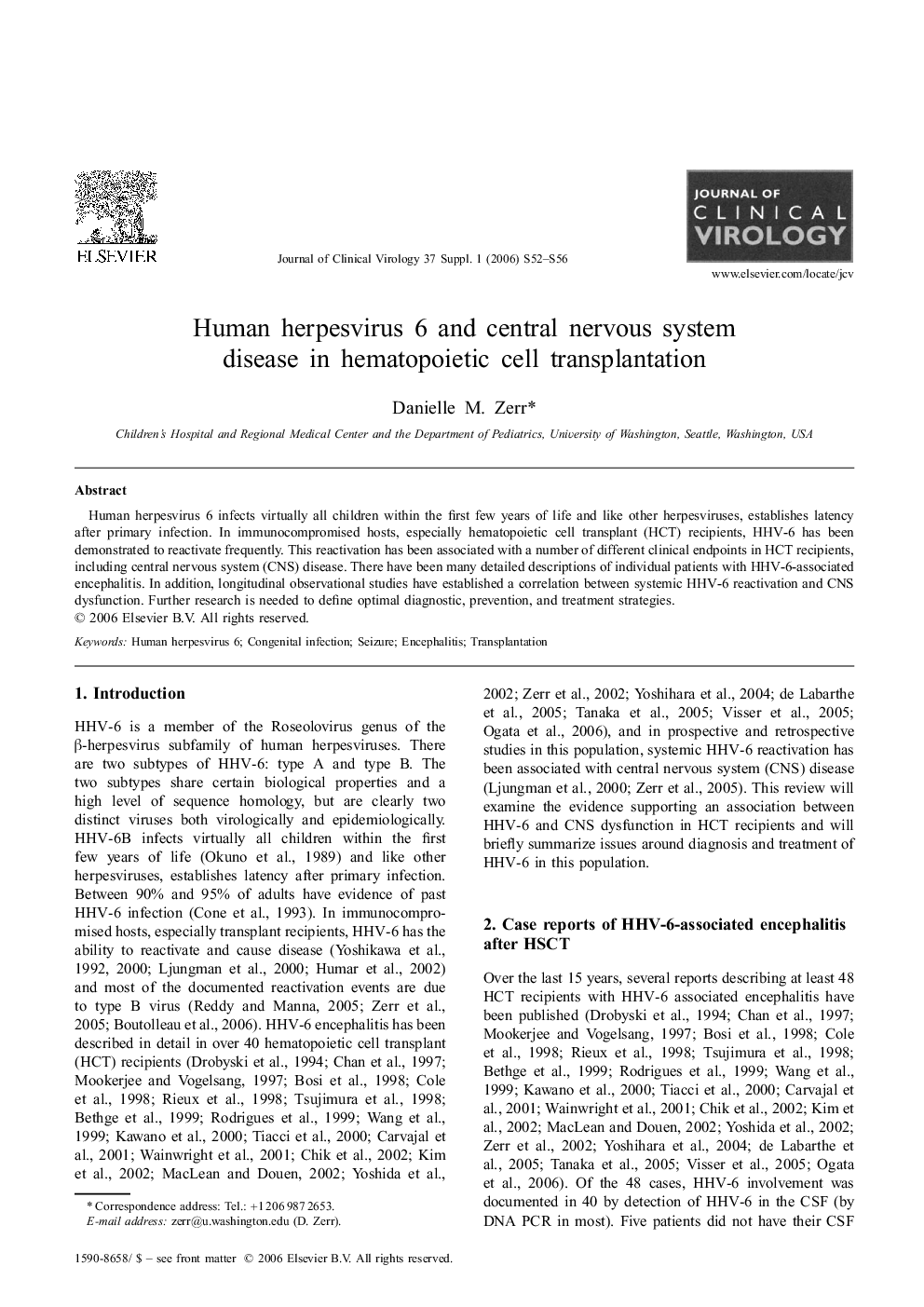| Article ID | Journal | Published Year | Pages | File Type |
|---|---|---|---|---|
| 3370672 | Journal of Clinical Virology | 2006 | 5 Pages |
Human herpesvirus 6 infects virtually all children within the first few years of life and like other herpesviruses, establishes latency after primary infection. In immunocompromised hosts, especially hematopoietic cell transplant (HCT) recipients, HHV-6 has been demonstrated to reactivate frequently. This reactivation has been associated with a number of different clinical endpoints in HCT recipients, including central nervous system (CNS) disease. There have been many detailed descriptions of individual patients with HHV-6-associated encephalitis. In addition, longitudinal observational studies have established a correlation between systemic HHV-6 reactivation and CNS dysfunction. Further research is needed to define optimal diagnostic, prevention, and treatment strategies.
